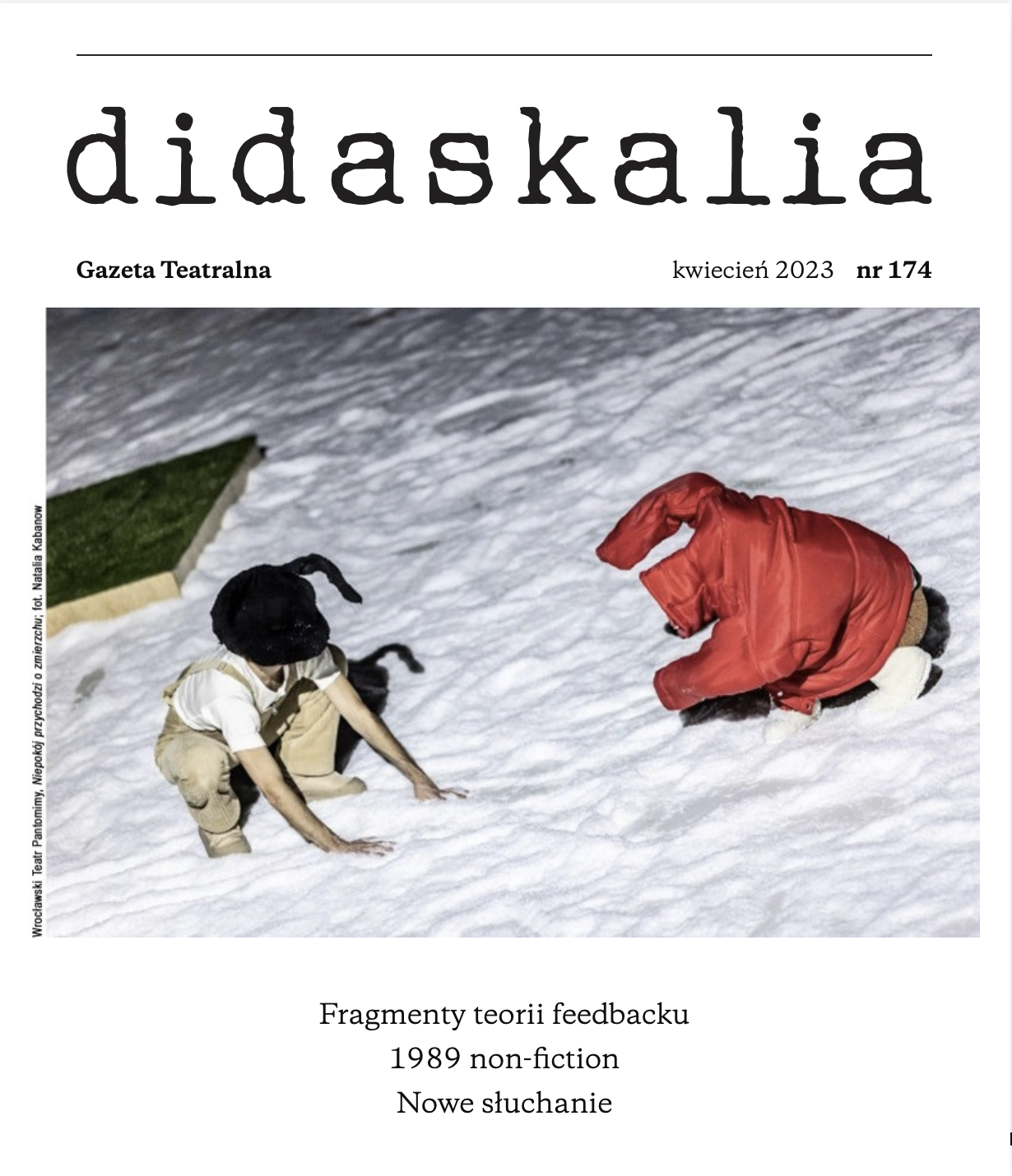„1989” – fantazja non-fiction
1989 – non-fiction fantasy
Author(s): Zbigniew MajchrowskiSubject(s): Fine Arts / Performing Arts
Published by: Instytut im. Jerzego Grotowskiego
Keywords: Solidarity; Lech Walesa; John Paul II; Polish transformation 1989; counter- history; herstory
Summary/Abstract: Can a theatrical spectacle rectify the greatest neglect of Poland’s post-1989 transformation and create a ‘positive’ founding myth of the ‘Solidarity’? This is the ambition of the musical 1989 produced by a creative team led by Marcin Napiórkowski, Katarzyna Szyngiera, Mirosław Wlekły and Andrzej ‘Wolny’ Webber (co-produced by the Gdansk Shakespeare Theatre and the Juliusz Słowacki Theatre in Krakow). According to the announcements, it was to be the first musical in Poland in the likeness of the American Hamilton, for the first time with entirely rapped vocals, showing the fall of communism from a new perspective and finally giving women their rightful place in the struggle for a free Poland. What captivates the audience is undoubtedly the musical and dance qualities of the performance, but the vision of history presented raises serious questions. A major misunderstanding in 1989 is the complete erasure of the church and the figure of John Paul II from the life of Poles in the 1980s. Furthermore, the diminishing of the role played by Lech Walesa in 1980-1989 is also completely incomprehensible. In the stage history, the leader of the August strike remains in the shadow of Jacek Kuroń and his own wife Danuta, and becomes a character without charisma, rather resembling Ubu Roi from Jarry’s play. The show tries to capture the energy of the Polish women’s strikes of the autumn of 2020, but on stage they are mainly rebellious lonely wives of activists who find encouragement in a conservative vision of family (‘to be simply one of many families’). There is nothing subversive here. Unlike in Hamilton, this is not a look at Poland ‘then’ from the perspective of Poland ‘today.’ Despite the repudiation of the traditional narratives, the paradigm of Polish Romanticism still triumphs because the entire dramatic plot is based on an old romantic cliché: ‘He did not find happiness at home because there was none in the fatherland’ (Mickiewicz, Konrad Wallenrod).The artists create their own counter-history, which they are of course artistically entitled to do, but they do not answer the question of causal power, i.e. where did society draw its strength to survive during martial law, or what led to the fall of the communist regime in 1989.
Journal: Didaskalia. Gazeta Teatralna
- Issue Year: 2023
- Issue No: 174
- Page Range: 60-98
- Page Count: 39
- Language: Polish

